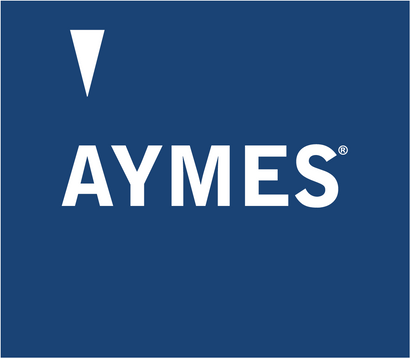
Laura Kinsey is the Lead Dietitian for Adult Cystic Fibrosis at Manchester University NHS Foundation Trust. She obtained a BSc (Hons) in Public Health Nutrition in 2002 and a Masters in Nutrition and Dietetics in 2004.
Laura has worked in the NHS since 2005. Her published research includes work on nutritional adequacy in coeliac disease, patient views on nutritional issues in inflammatory bowel disease, nutritional management of gastroparesis, perioperative nutritional support in ovarian cancer and primary intestinal lymphangiectasia.
A Dietitian’s journey: from student to lead specialist
Nearly 16 years ago, a young dietetic student was fascinated by a speaker brought in to talk to the class about his life as a Cystic Fibrosis (CF) patient. “That day is quite vivid in my memory,” Laura told me. “Hearing him speak about life expectancy and how CF impacted his quality of life really made an impression on me”. Fast forward 16 years and Laura Kinsey is the Lead Dietitian for Adult Cystic Fibrosis at Manchester University NHS Foundation Trust.
Although she was probably destined to work in this area, Laura hadn’t planned it that way. “I started off studying public health nutrition but soon realised I preferred the clinical side of things” she told me. Laura went on to complete a postgraduate degree and Masters in dietetics. She discovered a passion for gastroenterology and nutritional support very early on and moved gradually from her first graduate position to highly specialist and lead roles in digestive diseases.
When the role of lead for adult CF came up, it was too good an opportunity to miss. “CF is such an exciting and complex area with incredible opportunities to extend scope of practice” Laura told me. “Although I loved my job, I was ready for a new challenge. CF was an area that I could apply the skills I already had, and which also had so much potential for development. It’s such a great area to work in. Each day brings such a huge variety and CF dietitians are involved with every single patient throughout their adult journey with CF.”
“A day in the life”
I asked Laura what a typical day working in CF looks like. “I have an operational component to my role,” she replied. “I spend some of my time on managerial responsibilities, but a typical day for a CF dietitian can be incredibly varied. Generally, CF dietitians see both inpatients, in their own specialist ward, and outpatients in specialist MDT clinics. The CF team works extremely closely together and each morning starts with our MDT “huddle” to discuss all the patients we’ll be seeing that day. Working with our patients can be really intensive. We get to know each one really well and are lucky enough to be able to review them more often than any other patient group I have worked in due to their complexity. Clinically, we can be working with young people transitioning from paediatric services, managing GI symptoms, pancreatic enzyme replacement therapy, supporting weight management, bone health, micronutrient deficiencies, renal or liver complications, nutritional support, CF-related diabetes and more. This year has been quite challenging with COVID19, as our patients are in the extremely vulnerable category, so we have had to adapt our services significantly, using virtual and digital platforms where possible.”
I asked Laura what she most enjoys about working in CF. “I enjoy so many things about this role,” she said. “I like the variety, the support and contact we can give to patients, the MDT working and being so heavily involved in decision making within the unit. It’s an exciting time to work in CF. The new era of transmembrane conductance regulator (CFTR) modulator therapies is potentially changing the way dietitians work in CF, not only do patients have significant improvements in lung function but many also have significant improvement in nutritional status. There are many opportunities for research in the future and many new challenges in how we manage weight in CF patients. It’s an ever-changing area.”
There can be some challenging parts to the role too. “It can be very sad at times as our patients are often young and can be very unwell. The burden of disease in CF is very high and patients can struggle with many different aspects of their nutritional care. Empathy is really important for dietitians working in CF. There are many things I didn't anticipate before coming into the role, one is the impact that CF-related diabetes can have on patients. A new diagnosis, on top of CF, can be a huge additional burden and can be a real struggle for patients. Managing numerous medications and also trying to control blood sugars with chronic chest infections can be very difficult. Some patients also struggle with body image issues or social problems with high treatment burdens. We are very lucky here, however, as we have a great psychosocial team to help and our unit runs a wonderful program, called BOOST, which offers specialised and intensive support for CF patients who are struggling and at risk of disengaging from their treatment plans. All in all, it's a really busy role but I do enjoy it and would recommend it to anyone.”
Advice for Dietitians wanting to work in CF
For dietitians, or dietetic students wanting to work with CF patients, Laura has some advice. “It’s a wonderful area to work in. If you do have an interest, I would recommend looking for opportunities to gain experience wherever you can as experience in this area is not readily available as part of rotations. Sometimes people can be worried that the area is highly specialised and that they might not have the skills to apply for a CF post. Don’t be afraid to apply, there are so many valuable transferable skills and experiences that can be applied in the speciality. I think CF sometimes seems like a bit of a hidden area for dietitians.”
What would you like people to know about working in CF?
“Just what an interesting area it is to work in. It encompasses nearly every area of dietetics; nutrition support, home enteral tube feeding, diabetes, weight management, micronutrient deficiencies, renal and liver conditions, and GI issues. You really get to know your patients and can offer a lot of intensive support. It’s also one of the closest and most tight-knit teams I have ever worked in, and the dietitian is a well-respected part of that team. There is so much innovative practice going on, with so many opportunities for dietitians.”
This year, the theme of “Cystic Fibrosis Week” is about balance. The CF Trust says that people with CF are finding that “now, more so than ever, life is a constant balancing act between the demands of CF and aspiring to live a life unlimited”. With Dietitians like Laura working in the area, we can be proud to say that we are helping people with CF to live that life.
You can find out more about Laura via social media @laurakinseyRD



